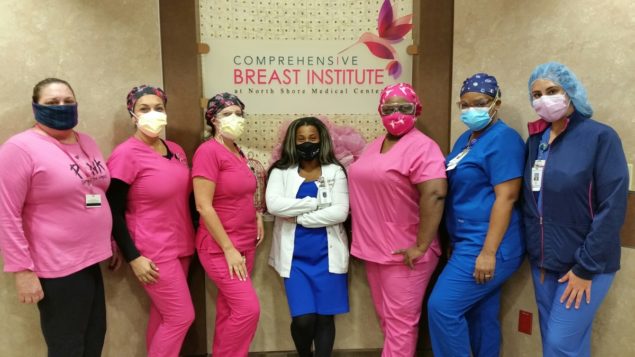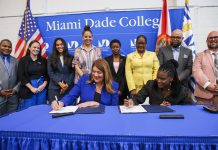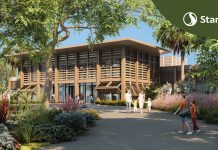|
Getting your Trinity Audio player ready...
|
 Breast pain is one of the most common symptoms in patients undergoing breast imaging tests. Known clinically as breast mastalgia, breast pain is a frequent ailment in women regularly affecting their quality of life. In the mainstream, especially in the media and on the internet, breast pain is often associated as a symptom of cancer. However, breast pain can develop from a variety of different conditions.
Breast pain is one of the most common symptoms in patients undergoing breast imaging tests. Known clinically as breast mastalgia, breast pain is a frequent ailment in women regularly affecting their quality of life. In the mainstream, especially in the media and on the internet, breast pain is often associated as a symptom of cancer. However, breast pain can develop from a variety of different conditions.
Two Types of Breast Pain (Mastalgia)
• Cyclical breast pain – ranging from slight discomfort or sensation to acute pain relating to fluctuating hormone levels during a woman’s menstrual cycle. One recent study reports two-thirds of women experience cyclical breast pain during their lifetime. This pain is usually bilateral, located in the upper outer quadrant of the breast. This type of breast pain can vary within the menstrual cycle as well as increase mid cycle until usually relieved with the start of menstruation. Cyclical breast pain occurs in premenopausal women, normally in the 30-40 age range. This type of pain can present as discomfort, fullness or heaviness, and dull or constant pain (achiness).
• Noncyclic breast pain – persistent pain radiating from a precise area and separate from the menstrual cycle. Noncyclic breast pain can also present from trauma in nearby muscles and joints within the proximity of the breast. This type of pain can radiate from the mammary or chest wall or musculoskeletal area. Noncyclic breast pain occurs most commonly in the 40-50 age range, in most cases is unilateral, localizes to the inner part of the breast or outer edge of the breast or even behind the nipple. The pain associated with noncyclic breast pain can resemble a burning, stabbing or throbbing pain. A recent study reports one-third of women will experience noncyclic breast pain during their life.
Breast Pain as a Symptom of Breast Cancer
Cancer is actually an infrequent source of mastalgia or breast pain. However, it can be a symptom in some breast cancer cases. Any type of breast pain should be thoroughly assessed by a medical doctor for potential associated symptoms and management of the patient’s symptoms. In addition, it’s rare for men to develop breast mastalgia, though it can develop in some cases of gynecomastia, a benign growth in male breast glandular tissue.
Women with primary inflammatory breast cancer (IBC) may also experience breast pain.
Inflammatory breast cancer characteristics may include a tender, firm and enlarged breast. Additionally, the skin over the breast may present as warm, thicker than normal and present with an orange hue. Any breast pain or change in the breast consisting of lumps or breast nodules, skin changes, peu d’orange color which is characterized by orange skin with edema and pitting, nipple retraction or discharge, as well as fever, should be seen by a medical doctor for further evaluation.
Diagnosis of Breast Pain
Breast pain in isolation with no other relevant features on history or examination is not an indication for imaging. All patients being seen by a medical doctor for breast pain within the reproductive age should be given a pregnancy test. Women with cyclical or bilateral non-focal breast pain usually do not require imaging. However, women with noncyclical, unilateral, or focal breast pain that is not extra mammary, such as chest wall pain, as determined by physical exam should undergo breast imaging to clarify the underlying etiology and exclude breast cancer. The choice of imaging modality is based on age.
Women under 30 years of age should undergo an ultrasound because it is more accurate than a mammography for that particular age group.
Women between 30-39 years of age should also undergo ultrasound, and unilateral or bilateral mammography should also be performed because in this age group some small cancers are found on mammography but not ultrasound. Women age 40 and older should undergo both mammography and ultrasound. Any underlying cause of breast pain suspected should be investigated and managed as appropriate by a medical doctor.
The Comprehensive Breast Institute at North Shore Medical Center is focused on breast care including prevention, early detection, diagnosis and treatment of breast conditions through compassionate and coordinated care. We provide screening, early detection, technology offering some of the most advanced diagnostic imaging services, specialist consultation for a full spectrum of breast conditions, and access to breast cancer treatment in an all-inclusive, warm and caring atmosphere.
For more information, please call the Comprehensive Breast Institute at North Shore Medical Center, 305-835-6160.
About North Shore Medical Center
North Shore Medical Center is a 337-bed general acute care community hospital located at 1100 NW 95th Street in Miami, Florida. The hospital is part of Tenet Healthcare’s Miami-Dade Group and has been serving the medical and healthcare needs of the North Miami community for more than 65 years. North Shore Medical Center offers a broad range of services, including: 24/7 emergency care, maternity services with a Level III Neonatal Intensive Care Unit, a cardiac catheterization lab, and psychiatric care. The hospital also offers specialized centers including: A Community Cancer Center, Comprehensive Breast Institute, Sleep Disorders Center, Pain Care Center and the first Certified Thrombectomy-Capable Stroke Center in Miami Dade.
North Shore Medical Center has consistently won achievement awards with the American Heart Association’s Get With The Guidelines program. The hospital has earned the 2020 Stroke and Target Stroke Honor Roll Elite Plus and Advanced Therapy Quality Achievement Award and the 2019 Heart Failure Gold Plus Quality Achievement Award. First in Florida Joint Commission Accredited Chest Pain Center. North Shore Medical Center is among 832 Hospitals Nationwide Awarded an “A” from the Leapfrog Hospital Survey for its commitment to keeping patients safe and making the highest safety standards in the U.S for Fall, 2017 and Spring 2018.
North Shore Medical Center is fully accredited by The Joint Commission, the nation’s oldest and largest health care accreditation agency. To learn more about North Shore Medical Center, please visit www.northshoremedical.com.





